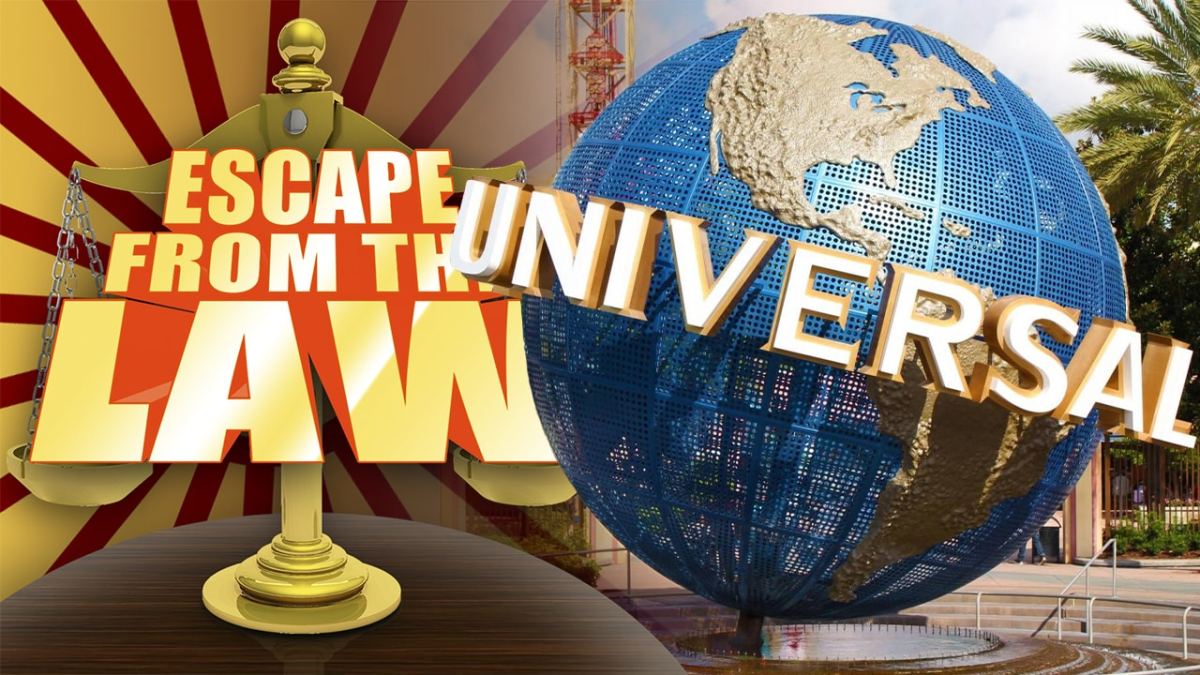Universal Studios owns many of the most popular movie franchises. To name just a few, the studio is responsible for Back to the Future, Minions, Jurassic Park, Shrek, and The Fast and the Furious. But the studio’s most iconic property is probably the Universal Monsters franchise, which includes the likes of Frankenstein, The Mummy, Dracula, and The Wolf Man. Well, hold on to your seats, because it looks like Universal Studios might be the next undead monster to join the ranks — and movie theaters may be the first victim.
The last few months have not been kind to movie studios. Because of the global pandemic, studios have been forced to postpone or cancel production on countless movies. At the same time, movie theaters across the country remain closed, which prevents studios from earning revenue on the movies they’ve already finished.
But not everyone is willing to let the pandemic get in their way. Faced with an unprecedented virus, people at every level have devised ways to circumvent the virus’s restrictions: the moviegoer who decided to sneak into an AMC theater to live on its snacks, the movie theater that created a pop-up drive-in theater, and, most pertinently, the movie studio (Universal) that decided to forgo theaters entirely, in favor of “premium video on demand.” But not all creative endeavors are for the best — just ask the guy who sneaked into AMC and was arrested and charged with burglary.
In April, Universal made Trolls World Tour available as a digital rental. The movie was originally scheduled for an April 10 theatrical release, but since theaters were closed, Universal skipped the theaters entirely. In a sense, the initiative was successful — as CNBC explained, “Trolls World Tour made more for Universal in 3 weeks on demand than Trolls did in 5 months in theaters.” In fact, Universal was so pleased with its streaming success that it announced its intent to skip theaters in future releases. Universal’s statement prompted an immediate backlash from the major movie theater chains, including AMC, which stated that it would “no longer play any Universal movies” in any of its theaters. Nearly a month has passed since those statements were made, and neither party has backed down.

To understand what’s going on here, we need to take a trip back in time. In today’s world, the movie industry has two major players: production companies, which make and distribute movies (Universal Studios, Disney, Paramount, etc.), and movie theaters, which purchase rights to show movies to the public. But it wasn’t always that way. Back in the 1930s and 1940s — at the dawn of cinema — production companies owned and operated roughly 20% of all movie theaters in the country. The problem was, with so much control, they were able to implement a series of restrictive conditions on the theaters they didn’t own. For example, studios required theaters to bundle different movies together (e.g., a theater wouldn’t be able to show Star Wars unless it also agreed to show The Emoji Movie), imposed restrictive pricing requirements on independent theaters, and required theaters to stagger movie times so that the same movie wouldn’t be shown simultaneously at multiple theaters.
In 1938, the Department of Justice filed an antitrust suit against all major movie studios. The case went up to the Supreme Court, and the movie studios lost. Because of that decision, the studios were bound by “The Paramount Decrees,” which required the major studios to sell their interest in movie theaters and to stop their anticompetitive practices. Over the decades, movie theaters and production companies have continued to feud over the terms of distribution. For example, in 2017, Disney made the news when it imposed a rule stating that theaters could only show The Last Jedi if they agreed to pay Disney 65% of their ticket sales, and to show the movie for at least four weeks in their largest auditoriums.
Despite the relatively frequent disagreements, the Paramount Decrees paved the way for a standard mode of operation between theaters and production companies, in which theaters negotiate separate terms for each movie of interest, and distributors agree not to show the movie outside of theaters for a designated period of time (an “exclusivity window”). Over the last few months, that mode of operation has been disrupted.

The largest source of disruption has been the COVID-19 pandemic. Since movie theaters are no longer operational, the production companies do not have an immediate incentive to honor the typical “exclusivity windows.” This explains why Trolls World Tour was released straight to video on demand, and why movies like Frozen 2 and Onward arrived on streaming platforms earlier than expected.
But COVID-19 is not the only source of disruption and is arguably not even the most significant. In late 2019, the Department of Justice announced that it would move to dissolve the Paramount Decrees and stated that the decrees would be phased out over the next two years. As that happens, Universal and other movie studios will no longer be as dependent on major movie theaters, since they will now have the ability to open their own theaters and keep all of the profits associated with movie tickets. At the same time, the significance of movie theaters as a concept seems to be on the downswing as streaming platforms have increased in popularity.
Of course, it isn’t all or nothing. The fact that movie studios can operate their own theaters doesn’t mean they will, and it certainly doesn’t mean that they will invest in the infrastructure needed to compete with nationwide movie chains like AMC or Regal. So while movie theaters may not be as well-positioned as they were prior to COVID-19, mass streaming, and the phase-out of the Paramount Decrees, they still have an important role to play, and they still have significant leverage over the production companies.
And that brings us back to Trolls World Tour, AMC, and Universal. The fact that a kids-oriented movie found success on streaming platforms when movie theaters were closed and people were starved for new content does not mean that the traditional modes of distribution are dead or that theaters are no longer necessary. It should be obvious that both Universal and the major movie theaters would stand to lose a lot of profit if a major blockbuster like Jurassic World were to skip the theaters — neither side wants that.

Instead, both sides are simply making the most of their current bargaining position. As it stands, it’s super easy for AMC to boycott all of Universal’s releases. Because theaters are closed, AMC wouldn’t be able to show Universal’s films even if it wanted to. At the same time, it’s super easy for Universal to ruffle AMC’s feathers, since the closure of movie theaters means that any release would make more money on digital platforms than in theaters. Thus, both sides can say whatever they want now without fear of any actual consequences. It is only once theaters open that the parties actually stand to lose anything.
That’s not to say that their posturing is meaningless. The fact remains that we are in the middle of huge technical, legal, and social changes that could forever change the entertainment industry. While the current squabbles may just be for show, it is nevertheless true that a “harmless” shot across the bow could easily escalate into all-out war.
Universal’s classic monster franchise was at its heyday in the 1930s, in the midst of the antitrust dispute between production companies and theaters. It’s only fitting that the next iteration of that franchise — which is set to take form over the next several years with new productions of The Invisible Man, Frankenstein, and others — would coincide with yet another sea change in the law of competition. The only question is whether Universal itself will be the largest monster of all.






Published: May 31, 2020 03:00 pm